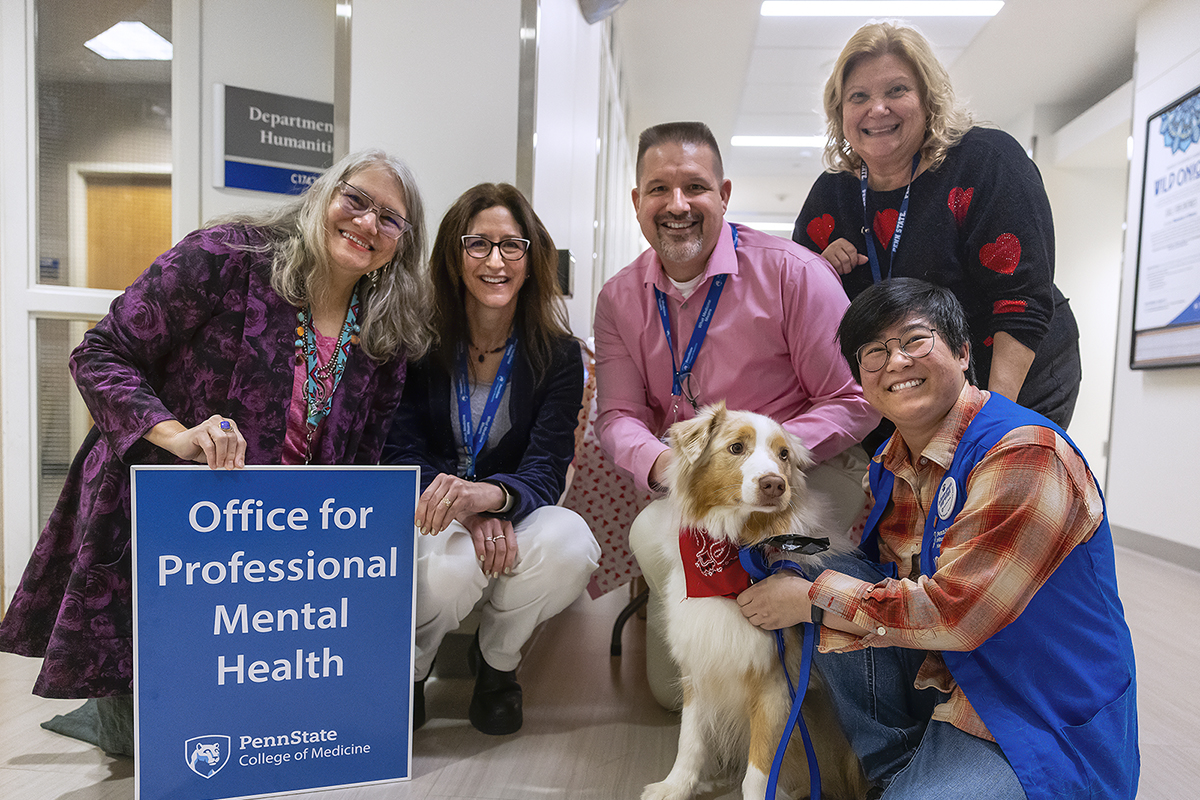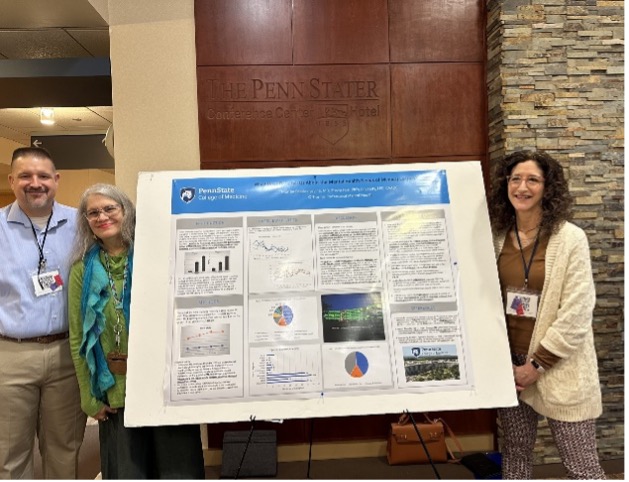Monthly Mental Health Moment: January-March 2024

“If you don’t like our weather, wait a few minutes.”
I thought about that quote last weekend, when we went from Spring-like conditions to a day of rain and then snow blustering past my window. And it is true – we are back to Spring again! (Or we were—winter temps are back.) This is mostly true with moods as well. They will pass if we wait a few minutes (or maybe an hour). You are stuck in traffic getting into work, maybe you are already in a bad mood—tired, not enough coffee—and then someone snaps at you for being late—perhaps they are in a bad mood too. What do you do? You can nourish that bad mood. Feed it every slight that comes along, every inconvenience. It will still eventually change. You will get a better night’s sleep and the next day may seem more promising. The bad mood will often pass faster if we don’t dwell on it. If we breathe or focus on something else – flowers poking up from the ground. But moods will change. That can be hard to remember when we feel irritated or sad. We can’t always change our moods, perhaps we are sad because something happened—someone is sick or passed away. Yet, even in those times, that sadness will pass. It will take more time – days or weeks instead of minutes. But those intense feelings will diminish and we can find happiness again.
What happens when those negative feelings don’t change? Maybe the feelings have come out of the blue? Perhaps we aren’t sleeping well and are exhausted and burnt out and our mood is low. We feel like there isn’t any way out. Breathing, distracting, talking to friends and family just isn’t helping. What then?
Typically, moods are like the weather and if we wait a bit, they will improve. But when we struggle with depression, those feelings don’t just pass. If the sadness continues, we start to question, what we are doing here? Do we matter? Would anyone miss us? Would it be easier to just not be here any longer? If you find yourself mired in that level of sadness, then help is essential.
Our Office (PMH) or other counseling services are required. Depression is like quicksand. It is hard to extract yourself from. You need someone standing on firm ground, reaching out and holding a sturdy branch for you to grab onto. We can be the person holding that branch. I have worked with many students and residents. Some have found themselves in that quicksand. They have found themselves being pulled down. They don’t have passion for medicine anymore but don’t see another path since they are in debt or deep in their training. Our Office has tools – therapy, medications – and have pulled people from the depths of their depression.
Over the past week, a number of residents have spoken to us about the ophthalmology resident at George Washington University who recently died by suicide. We don’t know the details of his struggles, but we recognize the fear and sadness that comes with any death. We recognize the fear of those in medicine, who worry about whether something like that could happen to them. His family expressed his hope and theirs that “…systemic changes can be made to support aspiring medical professionals better … we want more good people to make it in the medical profession without having to sacrifice so much of their well-being in the process.”
Our Office cannot promise to change the whole culture of medicine. Yet in some ways, our Office is part of the change. PMH was established to assist students, residents, fellows and faculty who need help navigating their way through darkness or need someone holding out a branch. Our Office is supported by the College of Medicine, the GME program and Faculty Affairs. This allows us to offer our services freely to those who are in need. Our services are confidential. We are here to help those who are struggling to find a way forward.
It can be hard if you are in that quicksand to reach out. Perhaps, a friend will recognize that you are struggling and will help you connect with our Office. Don’t wait for that to happen. If you were in a jungle, in quicksand, and thought someone was there to help you, wouldn’t you call out? Wouldn’t you ask for help? Call or email us (717-531-8658; pmh@pennstateheatlh.psu.edu). We are here to help. If that dark mood is not passing, don’t wait. Even if you think the mood might pass, if you feel unsure, reach out. We can help before that quicksand pulls your further in.
If you find yourself questioning your life or your choices, reach out. If you feel like each day is a slog, reach out. If you cannot sleep or find it hard to get up and go into work, reach out. If you no longer enjoy the things that you did before, reach out. If you are thinking that life is not worth it or that you are too tired to go on, definitely reach out. To us, to our emergency services, to anyone who can help.
The weather changes because of any number of variables. That can be true of our mood as well. Sometimes, one of those variables is getting help from someone else. The PMH team (Martha Peaslee Levine, MD; Stevie Falk, PhD, Jim Felty, LPC, CAADC) is here to help! Reach out!
Best,
Martha Peaslee Levine, MD
Director of the Office for Professional Mental Health
If you are experiencing a mental health emergency, go to your nearest emergency room or contact 911. If you need someone to talk to immediately, please call the Penn State Crisis line @ 877-229-6400 for a crisis counselor or text “LIONS” to 741741.
Jump to topic
Search
In This Month's Newsletter

Members of the Office for Professional Mental Health attended a Big Ten counseling conference.
- April 17, Noon to 1 p.m.: Silver Linings: Dealing with Unexpected Change
C1804 and via Zoom
Register with our Office - May 15, 11:30 a.m. to 1 p.m.: Mental Health Awareness
- May is Mental Health Awareness Month – schedule a check-up.
Reach Out For:
Relationship issues
Evaluation
Accessing a new point of view
Clarity
Help, hope
Options
Uplifting talk
Trust, therapy, treatment
Penn State College of Medicine
Office for Professional Mental Health
500 University Drive, Suite C1746
Hershey, PA 17033
717-531-8658
pmh@pennstatehealth.psu.edu
If you're having trouble accessing this content, or would like it in another format, please email the Penn State College of Medicine web department.
